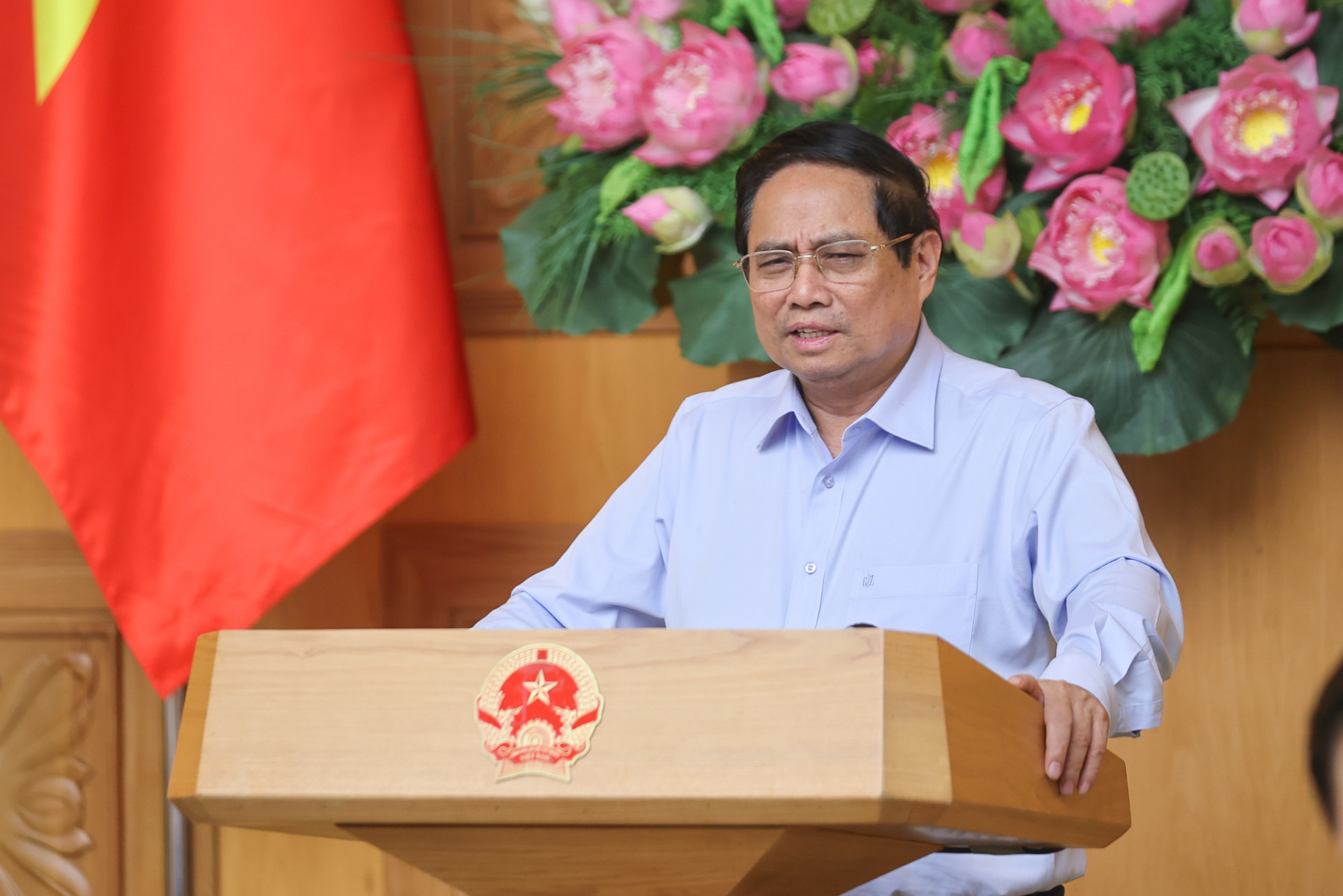
The meeting was attended by Politburo members, members of the Party Central Committee, Deputy Prime Ministers, and leaders of ministries and government agencies.
After listening to reports and recommendations, Prime Minister Chinh instructed ministries to review and finalize all legal documents within their authority to ensure smooth and lawful operations of the two-tier local government system. He stressed eliminating legal gaps, avoiding overlapping responsibilities, and resolving any issues that arise promptly.
Specifically, he ordered the swift issuance of circulars on decentralization, delegation, and delineation of authority by June 25; the review, amendment, supplementation, or repeal of outdated documents; and activation of permanent support teams to assist local governments. He also requested the development of detailed manuals for commune-level tasks.
Localities were instructed to submit detailed reports on the resolution of benefits, policies, and payments for staff affected by the restructuring. Payments for those with approved retirement or termination decisions must be completed no later than June 30.
The Prime Minister also addressed key issues in the transition process, including finance, assets, infrastructure, working conditions, and the readiness of information technology systems and digital transformation efforts.
He called for strict implementation of tasks outlined in Plan 02 dated June 19 by the Central Steering Committee for science, technology, innovation, and digital transformation. The plan emphasizes swift, synchronized digital transformation to support organizational restructuring.
By June 30, all administrative procedures managed by ministries and local authorities must be fully synchronized across national and local-level administrative information systems.
All localities must finalize the selection, configuration, and integration of their systems with the National Public Service Portal.
Ministries and provinces are required to upgrade information systems used in operations and governance - such as online meeting platforms, document and records management systems, email, reporting tools, personnel databases, and government portals - to support the new administrative structure.
They must ensure the delivery of 25 fully online public services integrated into the National Public Service Portal.
Additionally, 982 online services must be offered, with each averaging at least 10 processed cases per year per province (excluding services with low demand or those in highly specialized fields).
Authorities must allocate office space, equipment, leadership, staff, and network infrastructure, and ensure the stable operation of provincial-level public administration centers, and commune-level offices under the new model, guaranteeing uninterrupted service to citizens and businesses.
From July 1 to December 31, all eligible administrative procedures will transition to centralized digital services via the National Public Service Portal, gradually replacing fragmented provincial-level services with a unified national system.
VGP